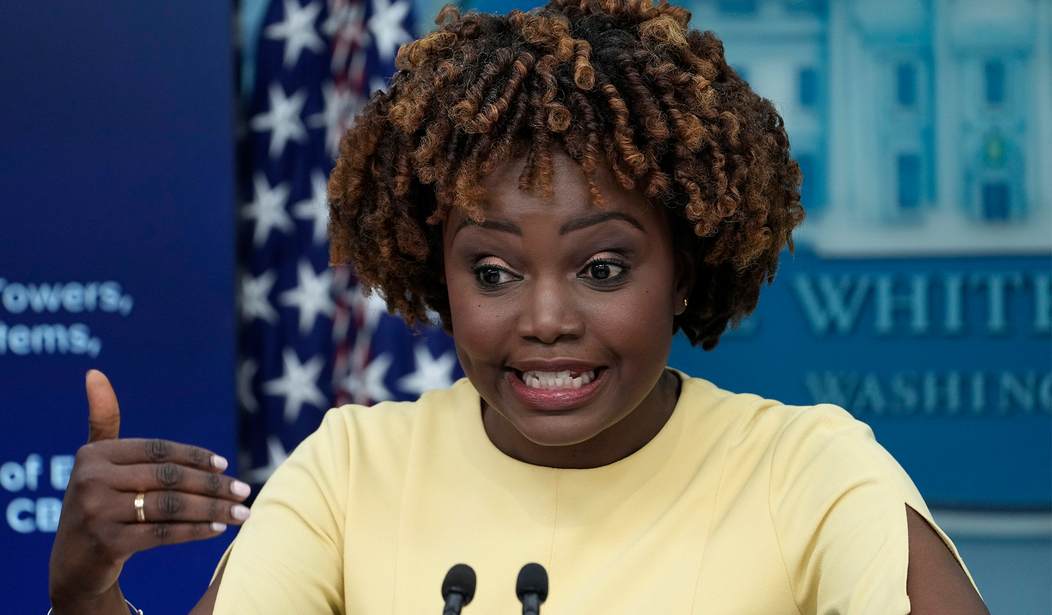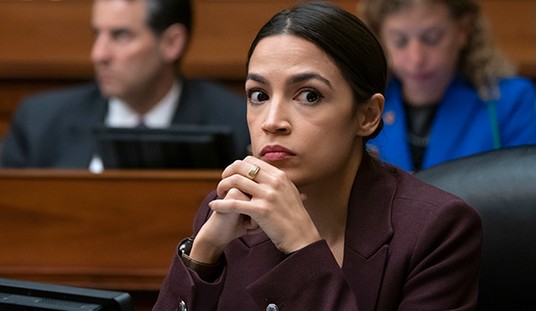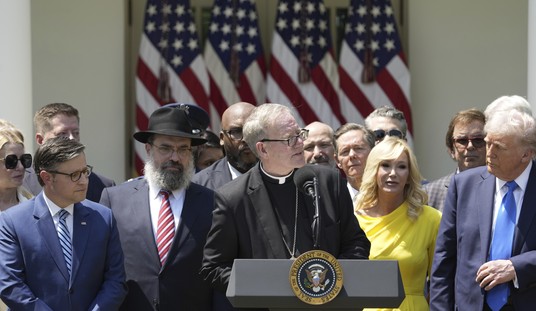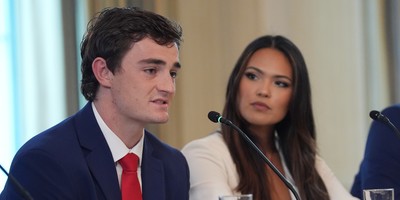Aboard Air Force One en route to San Diego on Monday, White House Press Secretary Karine Jean-Pierre scrambled to explain why the weekend failures of two banks — the two largest since the financial crisis of 2008 — was entirely dissimilar from what happened in 2008.
Jean-Pierre's airborne gaggle also sought to dispel talk that the Biden administration's action in response to the bank failures — covering all deposits beyond the amount guaranteed by the FDIC with fee revenue from banks, according to the White House — amounted to a bailout.
"No, this is not a bailout," Jean-Pierre said in response to a question on the administration's intervention. "This is not 2008 at all," she emphasized.
REPORTER: "Republicans are saying this is a bailout."
— Townhall.com (@townhallcom) March 13, 2023
KJP: "This is not a bailout. This is not 2008 at all." pic.twitter.com/MR2wPz7UEF
Jean-Pierre seemed to base her denial regarding the term "bailout" on the idea that the funds covering deposits in the two banks "are from fees on banks and not taxpayers," meaning "this is very different" compared to the 2008 crisis. But where did the bank get the money to pay the fees that are now being used to bail out Silicon Valley Bank and Signature Bank?
When asked how the White House would "reassure taxpayers they're aren't going to be on the hook" for the bailout funds, Jean-Pierre pointed to the president's remarks earlier on Monday — after which Biden refused to answer questions — and claimed the money in the Deposit Insurance Fund (DIF) was "more than enough" to cover deposits in the two failed banks.
Recommended
Again, Jean-Pierre reiterated that "this is not 2008, this is very different."
REPORTER: "Given the massive bill, how do you reassure taxpayers they aren't gonna be on the hook for this money, and how do you keep the Americans' confidence in the banking system?"
— Townhall.com (@townhallcom) March 13, 2023
KJP: "The president speaking to this this morning...is incredibly important..." pic.twitter.com/xszgSoR7de
Another concern with the Biden administration's intervention to fund deposits in SVB and Signature Bank is that the White House has now set a precedent for how it will handle bank failures. When asked about that precedent, Jean-Pierre refused to "comment on other institutions" and said the White House's focus was on "stabilizing financial systems," which somewhat undercuts Biden and Jean-Pierre's claims that "this is not 2008" and Americans "should be confident" in the security of the U.S. banking system.
When asked a follow-up about the precedent and whether the Biden administration would also use DIF money to bail out a bank in the midwest or other regions that *aren't* Silicon Valley, Jean-Pierre again retreated to saying "right now the action that we're taking is to stabilize the financial system."
Yet again, she added "this is not 2008."
Jean-Pierre also did not have an answer when asked how the reforms enacted by the Obama-Biden administration after 2008 failed to prevent a bank from being deemed "too big to fail" and end up receiving intervention from the federal government.
"Overall, the banking system is far more resilient and on [a] better foundation," Jean-Pierre argued before reiterating for the umpteenth time "this is not 2008."
The gaggle came just hours after President Biden spoke from the White House and told Americans they "should feel confident" in the U.S. banking system, then credited his administration for taking action to cover the full deposit amounts beyond what standard FDIC insurance would have covered. According to Biden, the cost of backing up the deposits will not be borne by taxpayers but covered by the fees banks pay into the deposit insurance fund.

























Join the conversation as a VIP Member